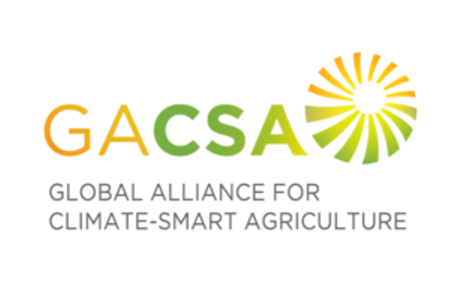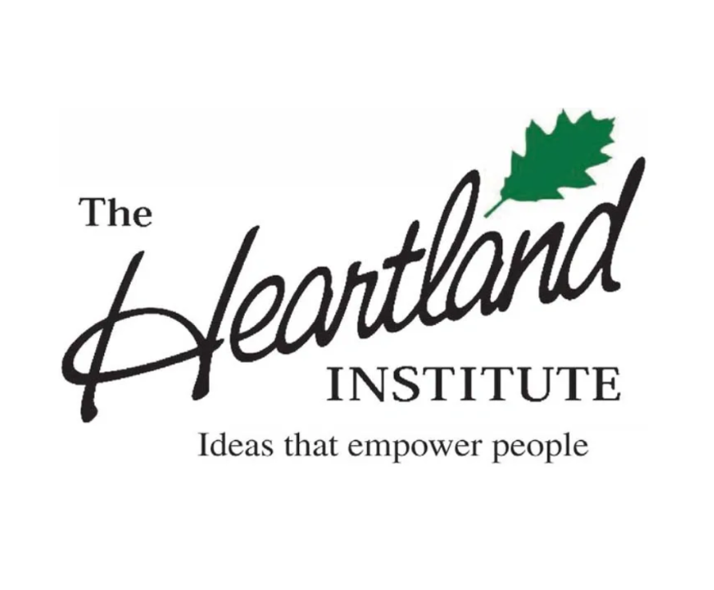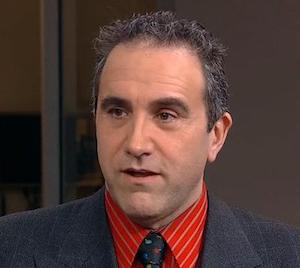Background
The Global Alliance for Climate-Smart Agriculture (GACSA) was launched in 2014 by the UN Food and Agriculture Organisation (FAO). GACSA describes itself as an “inclusive, voluntary and action-oriented multi-stakeholder platform on Climate-Smart Agriculture (CSA).”1“GACSA – Global Alliance on Climate-Smart Agriculture,” Food and Agriculture Organisation of the United Nations. Archived November 10, 2020. Archive.fo URL: https://archive.fo/NUITq
The concept of “climate smart agriculture” was originally developed by the FAO in 2010 where it was presented for the first time at the Hague Conference on Agriculture, Food Security and Climate Change.2“About CSA,” Global Alliance for Climate Smart Agriculture. Archived November 10, 2020. Archive.fo URL: https://archive.fo/DTybn
GACSA says its vision is to “improve food security, nutrition and resilience in the face of climate change.” However, according to non-profit organisation GRAIN, the alliance is “the culmination of several years of efforts by the fertiliser lobby to block meaningful action on agriculture and climate change.”3“About CSA,” Global Alliance for Climate Smart Agriculture. Archived November 10, 2020. Archive.fo URL: https://archive.fo/DTybn 4“The Exxons of Agriculture,” GRAIN, September 30, 2015. Archived November 10, 2020. Archive.fo URL: https://archive.fo/JSc6q
Organisations can become members of GACSA by agreeing to the group’s voluntary framework document.5“Global Alliance for Climate-Smart Agriculture (GACSA) – Framework,” Global Alliance for Climate Smart Agriculture, September 2014. Archived November 10, 2020. Archived .pdf on file at DeSmog. As of August 2020, there were 465 members of the alliance, including Syngenta, Yara International, Cool Farm Alliance and the World Farmers Organization (WFO).6“Member List,” Global Alliance for Climate Smart Agriculture. Archived November 10, 2020. Archive.fo URL: https://archive.fo/2PMuS
Prior to the alliance’s official launch at the UN climate talks in 2014, civil society groups and farmer organisations wrote an open letter expressing concerns about GASCA. The letter, which was signed by groups including Greenpeace International, Pesticide Action Network (Asia-Pacific) and ActionAid International, said “without clear standards for adaptation and mitigation that ensure environmental integrity, the Global Alliance for Climate Smart Agriculture could serve as a green-washing and policy-influencing platform for the planet’s worst offenders.”7“Open Letter from Civil Society On the Global Alliance For Climate-Smart Agriculture – July 2014,” Climate Smart Agriculture Concerns. Archived November 10, 2020. Archive.fo URL: https://archive.fo/OcKR4
The letter also called into question the corporate alliances in GACSA, saying: “As civil society groups we often challenge the power and practices of agribusiness corporations. We do not wish our presence in the Alliance to effectively legitimise those that we criticise.”8“Open Letter from Civil Society On the Global Alliance For Climate-Smart Agriculture – July 2014,” Climate Smart Agriculture Concerns. Archived November 10, 2020. Archive.fo URL: https://archive.fo/OcKR4
Stance on Climate Change
The FAO, the Food and Agricultural Organisation of the United Nations, reportedly first coined the term “climate smart agriculture” in 2010 “as a means to attract climate finance to its agricultural programmes in Africa.”9“The Exxons of Agriculture,” GRAIN, September 30, 2015. Archived November 10, 2020. Archive.fo URL: https://archive.fo/JSc6q The FAO supports governments to introduce climate-smart policies.10“Policy Support – Climate-Smart Agriculture,” Food and Agriculture Organisation of the United Nations. Archived November 10, 2020. Archive.fo URL: https://archive.fo/FZWz9 It presents climate-smart agriculture as a solution to reducing greenhouse gas emissions whilst also increasing productivity. 11“RT @FAOKnowledge: Climate-smart #agriculture can sustainably increase productivity while reducing greenhouse gases. #climatechange,” Tweet by user @FAOclimate, January 29, 2018. Retrieved from Twitter.com. Archived .png on file at DeSmog.
The FAO says its aim with climate-smart agriculture is “achieving sustainability, increasing food security and responding to climate change”. The FAO “seeks to catalyze and rally action to accelerate the scaling up of climate-smart agriculture through its members’ own initiatives, engagements and programs”.12“Climate Smart Agriculture Sourcebook,” Food and Agriculture Organisation of the United Nations. Archived November 10, 2020. Archive.fo URL: https://archive.fo/yYg6y
In a document laying out its strategic vision for 2018 “and beyond”, GACSA states: “The impacts of climate change are reducing the capacity of natural resources (soil, water and biodiversity) to sustain food demand of the world`s increasing population. Food security and climate change are therefore interlinked challenges that need to be addressed simultaneously. Increasing resource efficiency in agriculture and building resilience to climate risks are the key actions for undertaking these challenges. This implies a significant transformation of agriculture and food systems.” GACSA goes on to state that, among its key objectives, is working with stakeholders towards “enhancing agricultural, forestry and fisheries practices and systems that sustainably increase productivity, improve resilience and adaptation and, where possible, reduce or sequester emissions.”13“Strategic Vision 2018 and Beyond,” Global Alliance for Climate Smart Agriculture. Archived November 10, 2020. Archived .pdf on file at DeSmog.
As GACSA lays out in its “Annual Forum 2017 Summary Report”: “Climate-Smart Agriculture (CSA) aims to make agriculture part of the solution by achieving three related outcomes: (1) increasing productivity in a sustainable manner; (2) enhancing adaptation and resilience to climate change factors and (3) reducing greenhouse gases (GHG) emissions / sequestering greenhouse gases.”14“Summary Report” GACSA Annual Forum 2017,” Global Alliance for Climate Smart Agriculture. Archived November 10, 2020. Archived .pdf on file at DeSmog.
In a guidance document for policy makers and investors on “climate-smart pest management” GACSA states that climate change is “having a significant impact on global crop yields and food security” including influencing crop pests. With better climate and pest monitoring, it says, “farmers will be able to proactively implement pest prevention practices (e.g. use of pest resistant varieties, careful selection of planting, pruning and harvesting times, push-pull techniques, etc.) in order to prevent the occurrence and/or build-up of expected pest problems.”15Lucia Heeb, Emma Jenner, “Climate-Smart Pest Management – Implementation Guidance for Policymakers and Investors,” Global Alliance for Climate-Smart Agriculture. Archived November 10, 2020. Archived .pdf on file at DeSmog.
Charity Action Aid released a report in 2014 that said: “There are no meaningful criteria for what can – or cannot – be called ‘Climate Smart.’ Practices or corporations that are destructive to the climate, the environment, and to farmers, are free to use the term. Furthermore, there are no social safeguards to prevent so-called ‘Climate Smart’ activities from carrying out land grabbing, undermining farmers’ livelihoods, pulling farmers into debt, or even suing them for seed saving.”16“Clever Name, Losing Game? How Climate Smart Agriculture is sowing confusion in the food movement,” ActionAid, September 2014. Archived November 10, 2020. Archived .pdf on file at DeSmog.
“Corporations such as Syngenta, Yara (the world’s largest fertiliser manufacturer), McDonalds and Monsanto, which promote synthetic agrochemicals, intensive factory farming of livestock, and promote industrial scale mono-cropping are all jumping on the ‘Climate Smart’ bandwagon, claiming that they offer solutions to address climate change,” it continues.17“Clever Name, Losing Game? How Climate Smart Agriculture is sowing confusion in the food movement,” ActionAid, September 2014. Archived November 10, 2020. Archived .pdf on file at DeSmog.
“There is growing confusion and debate over what the term really means, what it can achieve, what is new about it, and whether it really can benefit food systems in the face of climate change,” Charity Action Aid adds.18“Clever Name, Losing Game? How Climate Smart Agriculture is sowing confusion in the food movement,” ActionAid, September 2014. Archived November 10, 2020. Archived .pdf on file at DeSmog.
A 2015 report by ETC Group and Heinrich Böll Stiftung likewise criticised the vagueness of climate smart agriculture concept. It said:19“Outsmarting nature? Synthetic biology and climate smart agriculture,” ETC Group and Heinrich Böll Stiftung. Archived November 10, 2020. Archived .pdf on file at DeSmog.
“None of the promoters of CSA delineate the specific techniques involved. FAO states that CSAGACSA, then even the most carbon-intensive, resource-wasting ones make the grade.”20“Outsmarting nature? Synthetic biology and climate smart agriculture,” ETC Group and Heinrich Böll Stiftung. Archived November 10, 2020. Archived .pdf on file at DeSmog.
The report also outlines how the big six agricultural companies at the time – Monsanto (now Bayer), DuPont and Dow (now Corteva), Syngenta, Bayer, and BASF – were driving the concept of climate smart agriculture.21“Outsmarting nature? Synthetic biology and climate smart agriculture,” ETC Group and Heinrich Böll Stiftung. Archived November 10, 2020. Archived .pdf on file at DeSmog.
Read more: Digital and Precision Agriculture – Criticisms and Concerns
Read more: Regenerative Agriculture – Criticisms and Concerns
Funding
The Global Alliance for Climate Smart Agriculture uses a ‘Facilitation Unit’ which is hosted by the FAO. Donors make financial contributions into a “multi-donor trust fund” and the Facilitation Unit supports GASCA members to implement activities and provides key services like communication, information and knowledge management, and exchange processes.22“FAQs,” Global Alliance for Climate Smart Agriculture. Archived November 10, 2020. Archive.fo URL: https://archive.fo/QcMua
Affiliations
GACSA has an extensive members list, which includes Governmental and Development Agencies, Inter-Governmental Groups, Non-Governmental Organizations, Farmers Organizations, Research and Academic Institutions, Private Sector, Non-profit Organizations, Civil Society Organizations and Regional Alliances.23“Member List,” Global Alliance for Climate Smart Agriculture. Archived November 10, 2020. Archive.fo URL: https://archive.fo/2PMuS
Its list of private sector members includes Syngenta.24“Member List,” Global Alliance for Climate Smart Agriculture. Archived November 10, 2020. Archive.fo URL: https://archive.fo/2PMuS
The group has 12 regional alliances:25“Member List,” Global Alliance for Climate Smart Agriculture. Archived November 10, 2020. Archive.fo URL: https://archive.fo/2PMuS
- Africa CSA Alliance
- Asia Pacific CSA Alliance
- Central Asia CSA Alliance
- East Africa CSA Alliance
- International Cooperative Alliance Asia-Pacific
- Latin America CSA Platform
- North American Climate-Smart Agriculture Alliance (NACSAA)
- Regional Alliance in Asia
- Regional Alliance in Europe
- Regional Sustainable Energy Centre of Excellence for Sub Saharan
- Southern Africa Coalition on Climate Change (SACCC)
- Southern Africa CSA alliance 26“Member List,” Global Alliance for Climate Smart Agriculture. Archived November 10, 2020. Archive.fo URL: https://archive.fo/2PMuS
Other Resources
Resources
- 1“GACSA – Global Alliance on Climate-Smart Agriculture,” Food and Agriculture Organisation of the United Nations. Archived November 10, 2020. Archive.fo URL: https://archive.fo/NUITq
- 2“About CSA,” Global Alliance for Climate Smart Agriculture. Archived November 10, 2020. Archive.fo URL: https://archive.fo/DTybn
- 3“About CSA,” Global Alliance for Climate Smart Agriculture. Archived November 10, 2020. Archive.fo URL: https://archive.fo/DTybn
- 4“The Exxons of Agriculture,” GRAIN, September 30, 2015. Archived November 10, 2020. Archive.fo URL: https://archive.fo/JSc6q
- 5“Global Alliance for Climate-Smart Agriculture (GACSA) – Framework,” Global Alliance for Climate Smart Agriculture, September 2014. Archived November 10, 2020. Archived .pdf on file at DeSmog.
- 6“Member List,” Global Alliance for Climate Smart Agriculture. Archived November 10, 2020. Archive.fo URL: https://archive.fo/2PMuS
- 7“Open Letter from Civil Society On the Global Alliance For Climate-Smart Agriculture – July 2014,” Climate Smart Agriculture Concerns. Archived November 10, 2020. Archive.fo URL: https://archive.fo/OcKR4
- 8“Open Letter from Civil Society On the Global Alliance For Climate-Smart Agriculture – July 2014,” Climate Smart Agriculture Concerns. Archived November 10, 2020. Archive.fo URL: https://archive.fo/OcKR4
- 9“The Exxons of Agriculture,” GRAIN, September 30, 2015. Archived November 10, 2020. Archive.fo URL: https://archive.fo/JSc6q
- 10“Policy Support – Climate-Smart Agriculture,” Food and Agriculture Organisation of the United Nations. Archived November 10, 2020. Archive.fo URL: https://archive.fo/FZWz9
- 11“RT @FAOKnowledge: Climate-smart #agriculture can sustainably increase productivity while reducing greenhouse gases. #climatechange,” Tweet by user @FAOclimate, January 29, 2018. Retrieved from Twitter.com. Archived .png on file at DeSmog.
- 12“Climate Smart Agriculture Sourcebook,” Food and Agriculture Organisation of the United Nations. Archived November 10, 2020. Archive.fo URL: https://archive.fo/yYg6y
- 13“Strategic Vision 2018 and Beyond,” Global Alliance for Climate Smart Agriculture. Archived November 10, 2020. Archived .pdf on file at DeSmog.
- 14“Summary Report” GACSA Annual Forum 2017,” Global Alliance for Climate Smart Agriculture. Archived November 10, 2020. Archived .pdf on file at DeSmog.
- 15Lucia Heeb, Emma Jenner, “Climate-Smart Pest Management – Implementation Guidance for Policymakers and Investors,” Global Alliance for Climate-Smart Agriculture. Archived November 10, 2020. Archived .pdf on file at DeSmog.
- 16“Clever Name, Losing Game? How Climate Smart Agriculture is sowing confusion in the food movement,” ActionAid, September 2014. Archived November 10, 2020. Archived .pdf on file at DeSmog.
- 17“Clever Name, Losing Game? How Climate Smart Agriculture is sowing confusion in the food movement,” ActionAid, September 2014. Archived November 10, 2020. Archived .pdf on file at DeSmog.
- 18“Clever Name, Losing Game? How Climate Smart Agriculture is sowing confusion in the food movement,” ActionAid, September 2014. Archived November 10, 2020. Archived .pdf on file at DeSmog.
- 19“Outsmarting nature? Synthetic biology and climate smart agriculture,” ETC Group and Heinrich Böll Stiftung. Archived November 10, 2020. Archived .pdf on file at DeSmog.
- 20“Outsmarting nature? Synthetic biology and climate smart agriculture,” ETC Group and Heinrich Böll Stiftung. Archived November 10, 2020. Archived .pdf on file at DeSmog.
- 21“Outsmarting nature? Synthetic biology and climate smart agriculture,” ETC Group and Heinrich Böll Stiftung. Archived November 10, 2020. Archived .pdf on file at DeSmog.
- 22“FAQs,” Global Alliance for Climate Smart Agriculture. Archived November 10, 2020. Archive.fo URL: https://archive.fo/QcMua
- 23“Member List,” Global Alliance for Climate Smart Agriculture. Archived November 10, 2020. Archive.fo URL: https://archive.fo/2PMuS
- 24“Member List,” Global Alliance for Climate Smart Agriculture. Archived November 10, 2020. Archive.fo URL: https://archive.fo/2PMuS
- 25“Member List,” Global Alliance for Climate Smart Agriculture. Archived November 10, 2020. Archive.fo URL: https://archive.fo/2PMuS
- 26“Member List,” Global Alliance for Climate Smart Agriculture. Archived November 10, 2020. Archive.fo URL: https://archive.fo/2PMuS






